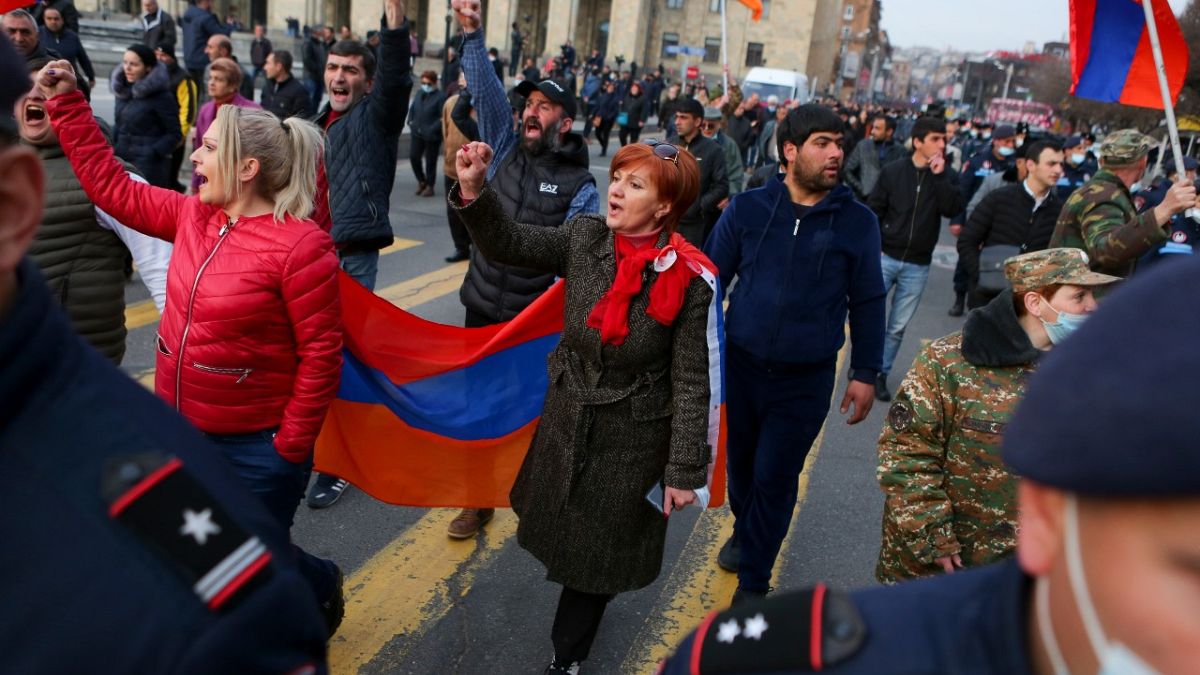The lifting of martial law, imposed at the start of the conflict with Azerbaijan over Nagorno-Karabakh last September, follows an agreement between PM Nikol Pashinyan's alliance and the opposition.
Armenia has moved to lift martial law, introduced at the end of September at the start of the war with Azerbaijan for control of the breakaway region of Nagorno-Karabakh.
This decision, approved by 118 of the 132 deputies in parliament, is part of an agreement between Prime Minister Nikol Pashinyan and the opposition to defuse the political crisis caused by the Armenian defeat in the conflict.
Under pressure from opponents who regularly hold demonstrations to demand his resignation, the prime minister announced last week that early parliamentary elections would be held in June.
However, Armenian law stipulates that a sitting prime minister cannot be removed from office if martial law is in force.
Ararat Mirzoyan, President of the National Assembly, said on Tuesday that the ruling political alliance would support the move in the light of the agreement to defuse political tensions by holding early elections.
The debacle in the autumn conflict with Azerbaijan over Nagorno Karabakh deeply affected the Armenians, who were victorious in the initial war that followed the fall of the USSR.
The cease-fire, negotiated by Russian President Vladimir Putin after six weeks of fighting that left more than 6,000 dead, involves significant territorial losses for Armenia and the deployment of Russian peacekeeping forces.
While Armenia keeps most of Nagorno-Karabakh, it had to cede the symbolic city of Shusha/Shushi as well as a buffer zone of Azerbaijani territories surrounding the region.


